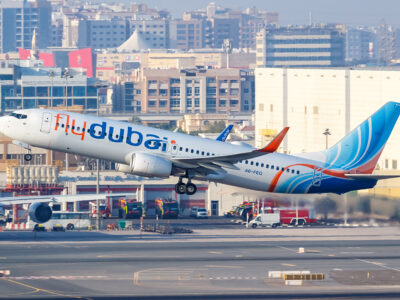Question: How do you feel the global credit crunch is impacting on the world’s airlines?
Expert:Brian Pearce, IATA’s chief economist
I think the most important effect of the credit crunch is the emerging risk of recession and the impact that will have on travel and air freight markets.
The credit crunch leading to recession and extreme weakness in travel markets is the biggest problem facing airlines.
We’ve already seen quite a sharp slow down in passenger travel markets and an absolute decline in air freight. At the start of the credit crunch in July/August it went down sharply.
To be honest, I think 2009 will see things worsen but I do think there will be different effects in various parts of the world. For example the Middle East, Latin America and Africa are benefiting from strong commodity demand which is funding their economic growth and some degree of the travel market with a stronger growth rate.
The credit crunch has been leading to less economic growth but there is more focus on America, Europe and parts of Asia. In the Middle East this is less so, but the region is definitely not immune.
This is partly due to the presence of oil, which has given them huge revenue to spend on developing their tourist market and infrastructure which has greatly added to the transport industry in this region.
The airline sector of the Middle East has spread its wings to serve big long-haul markets and it will be interesting to see how vulnerable that actually makes them to the current environment.
What we have seen in the last month is quite a sharp slow down in growth of passenger traffic; although domestic flights are still going strong due the problems in the rest of the world. There has been a slump in the long-haul market though.
Airlines are definitely cutting back and this will include staff, however this doesn’t necessarily have a negative effect. There has been a tremendous improvement in productivity; airlines are flying far more passengers per employee.
This is partly due to the outsourcing of activities, for example things that were previously dealt with by the airline are now contracted to maintenance or catering companies.
However, there are very rigorous rules about the number of people needed to operate a flight safely and that’s certainly not being changed by the current financial situation.
What you see is a shake out of staff that are perhaps not as effective as they used to be. In the US particularly, there have been substantial job losses resulting from cutbacks in capacity as the industry shrinks in the face of economic difficulties.
The work force is reducing in line with falling capacity rather than there being fewer people available to work on each operation.
As an industry we’re one of the most heavily regulated in terms of safety and security. It’s also a business that is rigorously observed by the airlines because if they lose the trust of passengers they lose business.
I think the credit crunch, leading to recession, and extreme weakness in travel markets is the biggest problem facing airlines. We still face very high fuel costs. Oil prices have come down an awful lot.
After hitting US$148 a barrel in July, they’re now down to less than $90 a barrel. But still $90 or $85 per barrel is considerably higher than the $70 we were seeing during 2007.
The cost of fuel is still an issue as we go into 2009. And because of hedging, the fuel prices that airlines are paying next year are likely to be higher than this year and that’s going to be a real burden in this environment.
It’s a very difficult economic environment. Airlines need to be diversified across markets to protect themselves against weaker markets. But because of the regulatory system, particularly the ownership and control side, it’s very difficult.
I think one way airlines can limit the damage is through alliances and codeshares; they will be able to divert a little bit away from the market risk of economic weakness.
A traditional response is cutting fares in order to stimulate traffic and I am sure that will happen.
But unfortunately, at the moment, consumer confidence is weak due to fears of recession and job losses so people are going to be pretty insensitive to price once more.
I think it is going to be difficult to stimulate that extra travel demand in this weak economic environment, people are not going to be able to afford flights. The only real choice for airlines is to cut capacity and try to match their cost base to the reduced revenue base.




